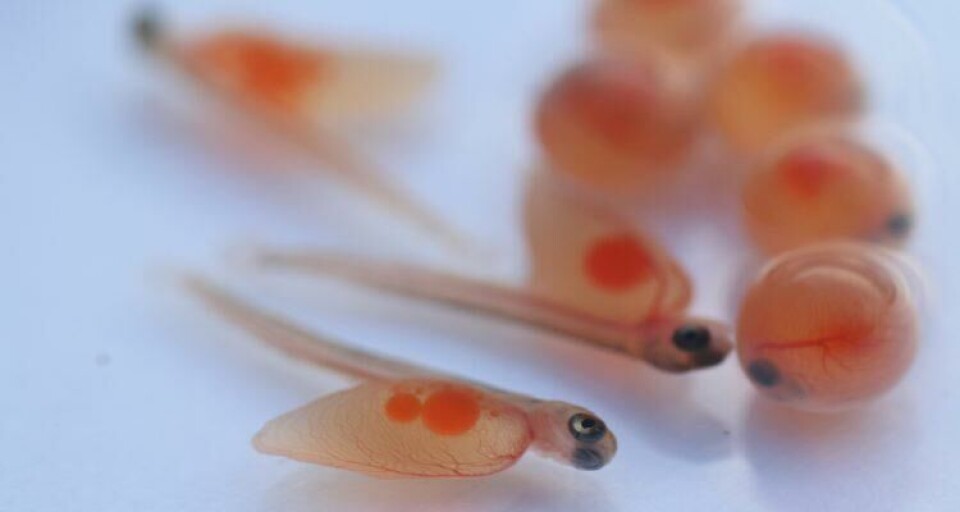
Flavobacteria-resistant trout eggs for sale
A new strain of trout eggs that are resistant to Flavobacteria is being launched commercially by Aquagen next year.
“We have found one or more QTLs in the genetic material of rainbow trout that are connected to Flavobacteria resistance. Each of the QTLs lead to reduced mortality, but resistance is higher when both QTLs are present. In a challenge with Flavobacteria the average survival rate for all fish was 38%, while for fish with a combination of two QTLs the survival was 84%,” says communications manager Anne Vik Mariussen.
The eggs are, as far as Aquagen knows, the first rainbow trout ova in the world to be selected to contain a QTL for flavobacteria resistance, one of the biggest problems facing the trout sector.
“There is no effective vaccine against the disease and antibiotics are used in outbreaks. Flavobacteria infections occur both in the freshwater and seawater phases (especially brackish water), and can cause high mortalities (50-90%) in juveniles, as well as mortalities and wound problems in larger fish,” Vik Mariussen explains.
Aquagen believes there is a huge global market for these eggs.
“Using eggs that are selected for Flavobacteria resistance will reduce the use of antibiotics…Generally, QTLs for virus resistance have been a great success in farmed salmon and have also proven effective for IPN resistance in rainbow trout. The results we have had are very promising, so we strongly believe that this product will provide an important contribution to improved fish health,” Vik Mariussen adds.
As for the trout market, Mariussen points out a number of challenges, especially after Russia introduced restrictions on imports from Norway, but believes there are signs of improvement.
“The production of rainbow trout has experienced a strong downward trend, especially in Chile. However, we have registered an increased interest for trout roe among Norwegian fish farmers, perhaps because global production is reduced, so it offers opportunities for great prices,” she argues.























































